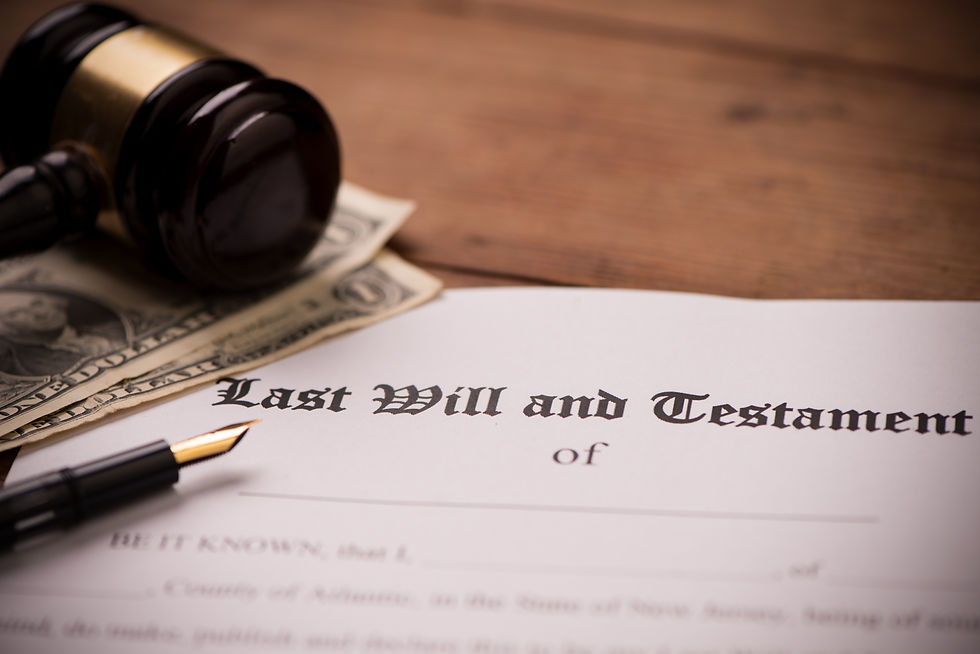Federal and State Agricultural Use Valuations: Helpful Tools to Reduce Your Taxable Estate
- Sarah Everhart
- Apr 15, 2015
- 3 min read
Updated: Jul 23, 2020
By Sarah Everhart
Federal Special Use Valuation
Farmers have an estate tax advantage in Internal Revenue Code Section 2032A: Special Use Valuation. Under the terms of this section, families who plan to continue farming a family owned farm for at least 10 years can have the farmland valued at its agricultural use value for estate tax purposes, which is often lower than its full market value.
Section 2032A allows farmers to reduce the fair market value of their land by up to $1,100,000 from their gross estate in 2015. This amount is indexed to inflation and adjusted each year by the IRS. To qualify for the Special Use Valuation, the farm must be passed on to a family member, known as a qualified heir who will use the property for a farming purpose for 10 years. The qualified heir must be a blood relative of the deceased, the deceased’s spouse, or the spouse of a blood relative. If the qualified heir stops farming the property within 10 years, a recapture provision requires the qualified heir pay the estate tax on the full market value plus interest. Further, the qualified heir must materially participate in the farming of the property, unless they are the surviving spouse, retired, or disabled. Material participation means that the qualified heir takes some financial risk in the farming operation and participates in the management decisions.
To be eligible, the family must elect to take the valuation within 9 months of the landowner’s death. In addition, at least half of the estate must consist of real or personal property which on the decedent’s date of death was being used for a qualified purpose, such as farming by the decedent or a family member. In addition, at least one-quarter of the estate must consist of real property, such as farmland or other type of farm real estate, which passed from decedent to a qualified heir. Finally, the decedent or a family member must have been owned and actively worked the property for a qualified purpose for 5 of the 8 years prior to the owner’s death.
Under Section 2032A, the land is valued by the 5-year average of the county cash rent for land of this soil quality minus applicable property taxes, then divided by an interest rate (the Federal land bank loan rate). In the case where a county cash rent amount cannot be found, the IRS may use the state agricultural assessment values or comparable sales of farmland.
Maryland Special Agricultural Property Estate Tax Exemption
In 2012, the Maryland legislature provided a special agricultural property estate tax exemption on the value of agricultural property for anyone predeceasing on or after January 1, 2012. This State agricultural property estate tax exemption allows a deceased individual’s estate to exempt the first $5 million of agricultural property value from the calculation of that deceased individual’s estate value for the purpose of calculating State estate tax. The law is designed to help keep current agricultural property in agricultural uses and prevent the loss of agricultural properties to other uses. All non-agricultural property in the deceased individual’s estate will still be subject to the $1.5 million Maryland estate tax exemption.
In order to use the agricultural property estate tax exemption, the deceased individual’s agricultural property will need to be 1) “qualified agricultural property,” 2) used for a “farming purpose” and 3) passed to a “qualified recipient.” A “qualified agricultural property” is defined as all real or personal property chiefly used for farming purposes. This includes not only land used for agricultural production but also the equipment used. A “qualified recipient” is any person or persons willing to enter into a 10-year written agreement to use the qualified agricultural property for a farming purpose similar to the Federal Special Use Valuation described above. However, unlike the Federal Special Use Valuation, there is no requirement that a qualified individual be a family member of the deceased individual. A qualified recipient can be any individual (family member, friend, business partner, etc.) the deceased individual wants to inherit the farm. The qualified recipient must enter into a written agreement with the State of Maryland that the exempted agricultural property will remain in agricultural use for the next 10 years. During the 10-year period that the property must be used for agricultural purposes, the State will hold a lien against the property in the amount of the estate taxes reduced because of this agricultural property exemption and if the property ceases to be used for a farming purpose the State will recapture the estate taxes owed.
The purpose of this post is to provide general information not individual legal advice. All individuals should discuss how best to minimize their estate tax burden with their attorney.




Comments